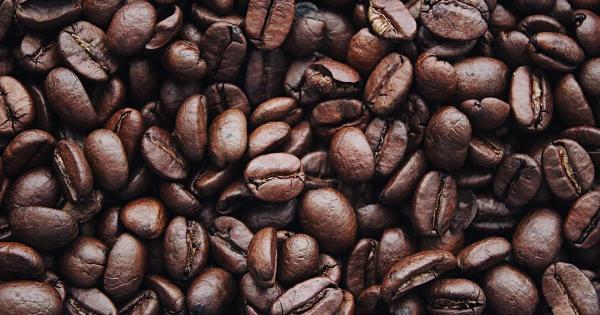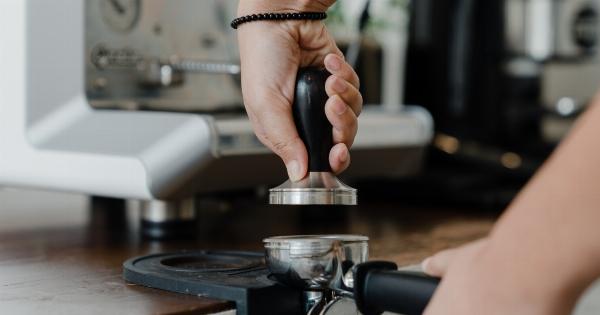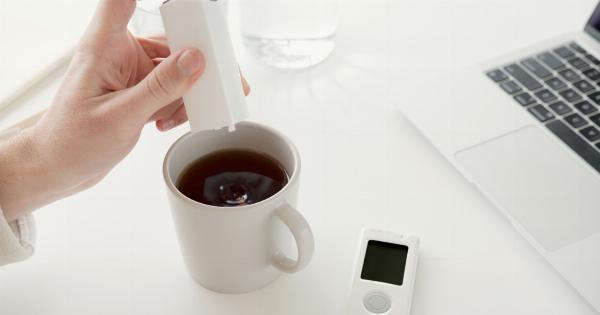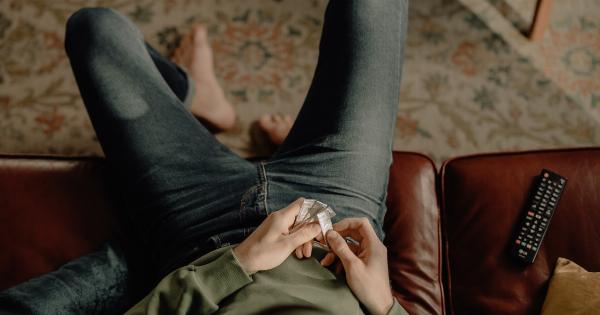Many people rely on a cup of coffee to kickstart their day or get through a long afternoon at work, but what happens when your coffee consumption starts to spiral out of control? While coffee can offer certain health benefits, excessive consumption can have negative effects on both your physical and mental well-being. In this article, we explore the signs that your coffee consumption may be getting out of hand and provide tips on how to regain control.
1. You Depend on Coffee to Function
If you find yourself unable to start your day or stay focused without a cup of coffee, it might be a sign that your coffee consumption is becoming unsustainable.
While coffee can momentarily boost alertness and mental clarity, relying on it as a crutch may indicate a deeper issue with energy levels or sleep deprivation.
2. You Experience Withdrawal Symptoms
Do you get headaches, irritability, or extreme fatigue when you don’t have your regular dose of coffee? These are common symptoms of caffeine withdrawal, which can occur when you’ve become dependent on the stimulant effects of coffee.
Sensitivity to light and difficulty concentrating are also signs to watch out for.
3. You Drink Coffee Late in the Day
If you find yourself sipping coffee well into the evening hours, it can disrupt your sleep patterns and affect the quality of your rest.
While occasional late-afternoon coffee may not be harmful, regularly consuming caffeine close to bedtime can lead to insomnia and restless nights.
4. Your Tolerance Has Increased
Do you need multiple cups of coffee to experience the same energizing effects you used to get with just one? Developing a high tolerance to caffeine is a clear indication that your coffee consumption has gone beyond moderate levels.
Increasing your intake only leads to a vicious cycle of needing more caffeine to achieve the desired outcomes.
5. You Ignore the Negative Effects
Coffee can have various negative effects on your body, including heartburn, increased heart rate, and digestive issues.
If you consistently experience these symptoms but continue to drink coffee regardless, it may be a sign that your coffee consumption has become habitual and irrational.
6. You’re Not Hydrating Properly
Caffeine acts as a diuretic, which means it increases urine production and can lead to dehydration if you’re not replenishing fluids adequately.
If you notice that your water intake has decreased significantly, and you’re relying on coffee for hydration, it’s time to reassess your coffee habits.
7. You Prioritize Coffee Over Nutrition
A heavy reliance on coffee often comes at the expense of a balanced diet. If you regularly skip meals or replace them with caffeine-fueled drinks, you may be depriving your body of essential nutrients.
Proper nutrition is crucial for sustained energy levels and overall well-being.
8. You Substitute Sleep with Coffee
Coffee should never be used as a substitute for a good night’s sleep. While it can temporarily mask fatigue, continually relying on coffee to compensate for lack of sleep can lead to chronic exhaustion and a range of other health problems.
9. You Experience Increased Anxiety or Restlessness
Caffeine stimulates the central nervous system, which can trigger symptoms of anxiety, restlessness, and irritability.
If you’ve noticed a significant increase in these feelings and are consuming large amounts of coffee, it may be time to consider reducing your intake.
10. You’re Unsuccessful at Cutting Back
If you’ve tried to cut back on coffee but continuously find yourself giving in to cravings, it could be a sign of addiction.
Coffee addiction is real and can lead to severe withdrawal symptoms, making it even harder to reduce consumption on your own.
Regaining Control of Your Coffee Consumption
Recognizing that your coffee consumption has become excessive is the first step towards regaining control. Here are some tips to help you reduce your dependence on coffee:.
1. Gradually Decrease Consumption
Instead of quitting coffee cold turkey, gradually reduce the amount you drink each day. This approach can help minimize withdrawal symptoms and make the process more manageable.
2. Replace Coffee with Alternatives
Experiment with herbal teas, decaf coffee, or caffeine-free beverages to satisfy the habit of holding a warm drink without the stimulant effects of caffeine.
3. Establish a Sleep Routine
Ensuring you get enough quality sleep can reduce your reliance on caffeine to stay alert. Establish a consistent sleep routine by going to bed and waking up at the same time every day.
4. Stay Hydrated
Drink plenty of water throughout the day to counteract the dehydrating effects of caffeine and help reduce cravings for coffee.
5. Focus on Nutrition
Make sure you’re eating a well-balanced diet that provides the necessary nutrients and energy your body needs. Proper nutrition can help combat feelings of fatigue and reduce the desire for caffeine.
6. Find Alternative Ways to Boost Energy
Look for natural ways to boost your energy levels, such as regular exercise, getting outdoors, or practicing mindfulness and meditation. These activities can provide a sustainable energy lift without relying on caffeine.
7. Seek Support
If you find it challenging to break free from excessive coffee consumption, consider seeking support from friends, family, or professional counselors who can provide guidance and encouragement.
Remember, moderation is key when it comes to coffee consumption. By paying attention to the signs of excessive intake and taking proactive steps to regain control, you can enjoy the benefits of coffee without it becoming a detriment to your well-being.




























